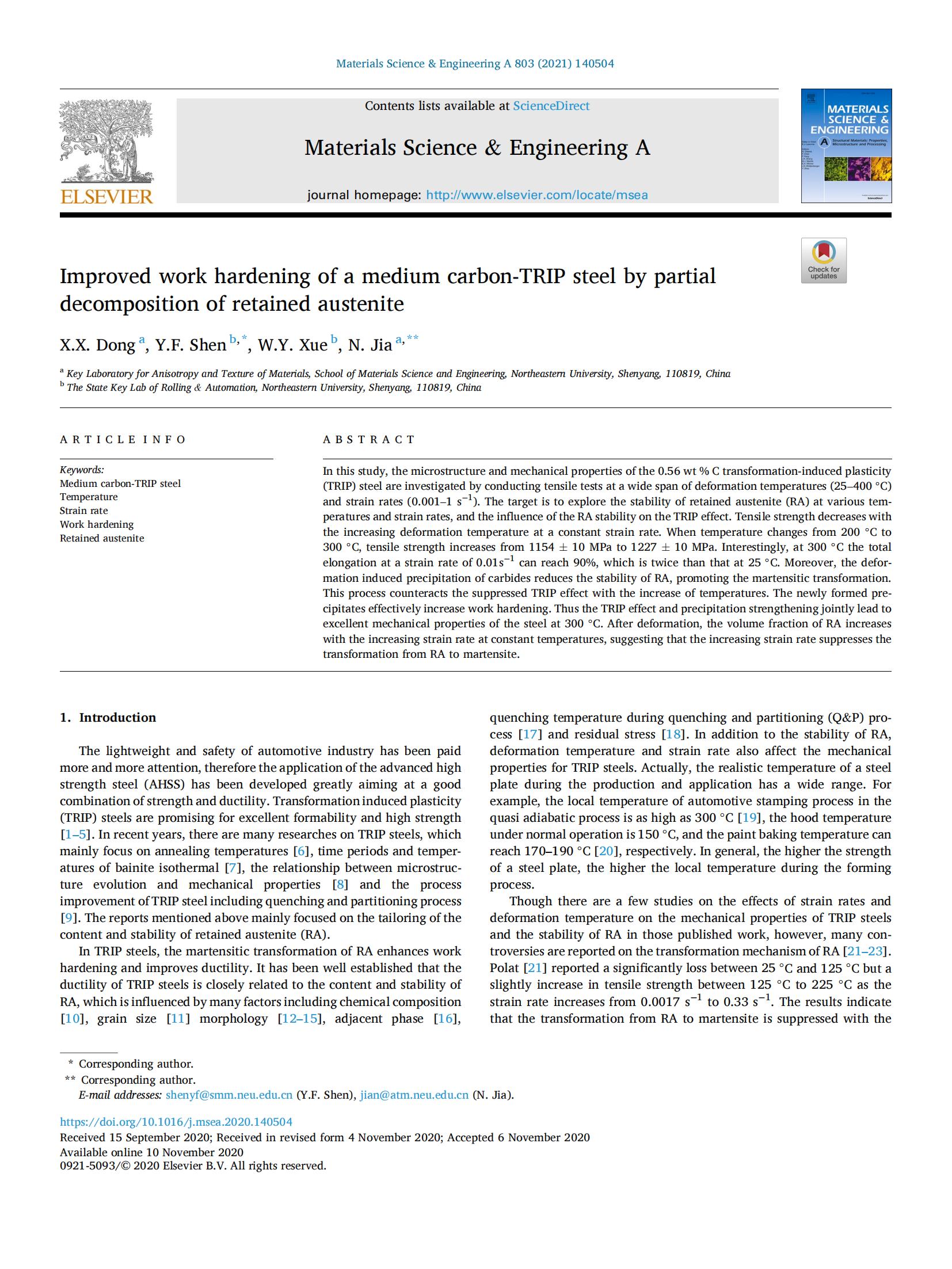In this study, the microstructure and mechanical properties of the 0.56 wt % C transformation-induced plasticity (TRIP) steel are investigated by conducting tensile tests at a wide span of deformation temperatures (25–400 °C) and strain rates (0.001–1 s−1). The target is to explore the stability of retained austenite (RA) at various temperatures and strain rates, and the influence of the RA stability on the TRIP effect. Tensile strength decreases with the increasing deformation temperature at a constant strain rate. When temperature changes from 200 °C to 300 °C, tensile strength increases from 1154 ± 10 MPa to 1227 ± 10 MPa. Interestingly, at 300 °C the total elongation at a strain rate of 0.01s−1 can reach 90%, which is twice than that at 25 °C. Moreover, the deformation induced precipitation of carbides reduces the stability of RA, promoting the martensitic transformation. This process counteracts the suppressed TRIP effect with the increase of temperatures. The newly formed precipitates effectively increase work hardening. Thus the TRIP effect and precipitation strengthening jointly lead to excellent mechanical properties of the steel at 300 °C. After deformation, the volume fraction of RA increases with the increasing strain rate at constant temperatures, suggesting that the increasing strain rate suppresses the transformation from RA to martensite.
